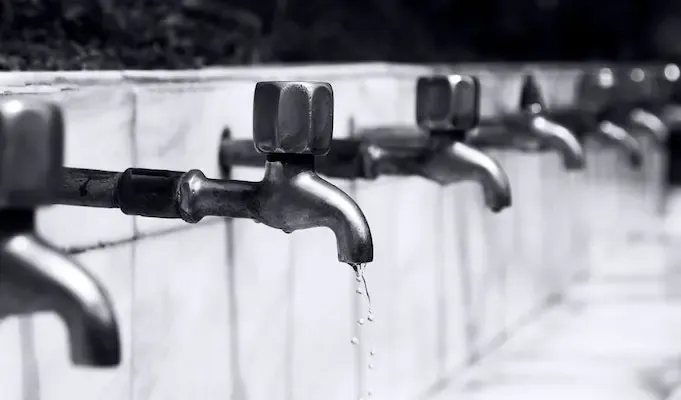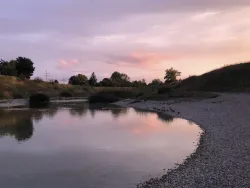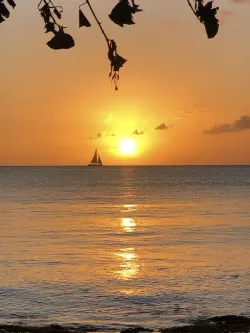List of Countries with Safe Water For Drinking
Access to safe drinking water is a fundamental human right, yet millions of people around the world still lack this basic necessity. In some countries, the quality of tap water can be a concern due to contamination and infrastructure issues. However, many countries have made significant strides in providing clean and safe tap water to their citizens. In this article, we will explore some of the countries known for having safe tap water, but it’s essential to remember that water quality can vary within a country and even between different regions.

Countries with Safe Drinking Water
- Australia
- Austria
- Bahrain
- Belgium
- Canada
- Chile
- Costa Rica
- Croatia
- Czech Republic
- Denmark
- Dubai
- England
- Estonia
- Finland
- France
- Germany
- Greece
- Greenland
- Guadeloupe
- Hungary
- Iceland
- Ireland
- Israel
- Italy
- Japan
- Kuwait
- Liechtenstein
- Luxembourg
- Malta
- Monaco
- The Netherlands
- New Zealand
- Northern Ireland
- Norway
- Poland
- Portugal
- Puerto Rico
- San Marino
- Saudi Arabia
- Scotland
- Singapore
- Slovakia
- Slovenia
- South Korea
- Spain
- Sweden
- Switzerland
- United Arab Emirates
- United Kingdom
- United States
- U.S. Virgin Islands
- Wales
Countries with NOT Safe Drinking Water
- Afghanistan
- Albania
- Algeria
- American Samoa
- Angola
- Antigua and Barbuda
- Argentina
- Armenia
- Azerbaijan
- Azores
- The Bahamas
- Bangladesh
- Barbados
- Belarus
- Belize
- Benin
- Bhutan
- Bolivia
- Bonaire
- Bosnia and Herzegovina
- Botswana
- Brazil
- British Indian Ocean Territory
- Brunei
- Bulgaria
- Burkina Faso
- Burundi
- Cambodia
- Cameroon
- Canary Islands
- Cape Verde
- Cayman Islands
- Central African Republic
- Chad
- China
- Colombia
- Comoros
- Republic of the Congo
- Cuba
- Cyprus
- Democratic Republic of the Congo
- Djibouti
- Dominica
- Dominican Republic
- Ecuador
- Egypt
- El Salvador
- Equatorial Guinea
- Eritrea
- Ethiopia
- Falkland Islands
- Faroe Islands
- Fiji
- French Polynesia
- Gabon
- The Gambia
- Georgia
- Ghana
- Gibraltar
- Grenada
- Guatemala
- Guinea
- Guinea-Bissau
- Guyana
- Haiti
- Honduras
- Hong Kong
- India
- Indonesia
- Iran
- Iraq
- Jamaica
- Kazakhstan
- Kenya
- Kosovo
- Kyrgyzstan
- Laos
- Latvia
- Lebanon
- Lesotho
- Liberia
- Libya
- Lithuania
- Macau
- Madagascar
- Madeira
- Malawi
- Malaysia
- Maldives
- Mali
- Mauritania
- Mauritius
- Mexico
- Moldova
- Mongolia
- Montenegro
- Morocco
- Mozambique
- Namibia
- Nauru
- Nepal
- Nicaragua
- Niger
- Nigeria
- North Korea
- North Macedonia
- Oman
- Pakistan
- Panama
- Papua New Guinea
- Paraguay
- Peru
- Philippines
- Qatar
- Romania
- Russia
- Rwanda
- Saba
- Saint Barthelemy
- Saint Kitts and Nevis
- Saint Lucia
- Saint Martin
- Samoa
- São Tomé and Príncipe
- Senegal
- Serbia
- Seychelles
- Sierra Leone
- Sint Eustatius
- Sint Maarten
- Solomon Islands
- Somalia
- South Africa
- South Sudan
- Sri Lanka
- Sudan
- Suriname
- Syria
- Taiwan
- Tajikistan
- Thailand
- Timor-Leste
- Togo
- Tokelau
- Tonga
- Trinidad and Tobago
- Tunisia
- Turkey
- Turkmenistan
- Turks and Caicos Islands
- Tuvalu
- Uganda
- Ukraine
- Uruguay
- Uzbekistan
- Vanuatu
- Venezuela
- Vietnam
- British Virgin Islands
- Wake Island
- Yemen
- Zambia
- Zimbabwe
Access to safe tap water is a global concern, and many countries are making strides to ensure their citizens have reliable and clean drinking water. The examples mentioned here represent a selection of countries with a reputation for providing safe tap water. However, it is essential to remember that water quality can vary within a country, and in some regions, additional filtration or treatment may be necessary. Regardless of where you are, staying informed about the quality of your tap water and taking appropriate precautions, such as using filters or boiling, is crucial to ensure your water is safe for consumption.



